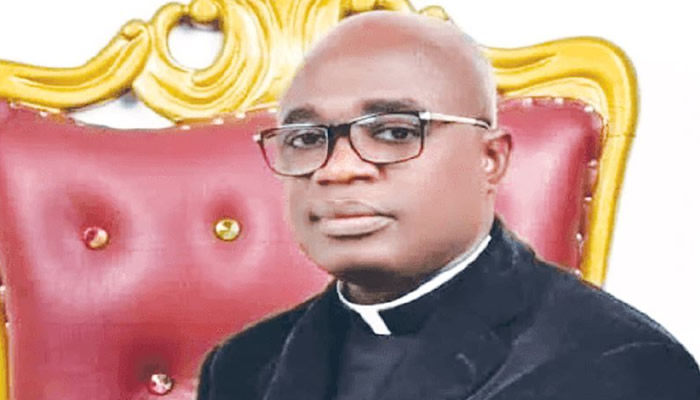The escalating insecurity in Benue State has ignited a fierce political row between Governor Hyacinth Alia and a faction of the All Progressives Congress (APC) loyal to the Secretary to the Government of the Federation, George Akume. The governor, facing criticism for his handling of the security crisis, expressed frustration over the persistent violence despite increased security deployments and high-level visits by security chiefs. He emphasized his administration’s commitment to tackling the issue, highlighting the provision of logistical support, including 300 motorcycles, to security forces. However, he lamented the lack of arrests despite these efforts. The core issue revolves around recent attacks in Gwer West Local Government Area, which claimed the lives of a police officer and 41 residents, adding to the mounting death toll from persistent violence in the state. This incident has sparked accusations from the Akume-led APC faction, who claim the governor lacks the capacity and strategy to address the escalating insecurity.
The Akume-led faction, through its Publicity Secretary, Daniel Ihomun, condemned what it described as Governor Alia’s helplessness and confusion in the face of the relentless attacks. They pointed to the recent massacre as evidence of the governor’s alleged inability to manage the security crisis and called on President Bola Tinubu to intervene directly. The faction criticized the governor’s perceived inaction and lack of a coherent security strategy, arguing that the state is experiencing a “genocide” under his watch. They further denounced the “conspicuous silence” of the Benue State House of Assembly, whose recess, they assert, displays legislative passivity and indifference to the widespread violence plaguing the state.
Governor Alia, in response to these accusations, defended his administration’s efforts through his media aide, Kula Tersoo. He questioned what more could be expected of him given the already deployed measures, including the mobilization of additional security personnel and collaborative efforts with top security officials. The governor’s spokesperson argued that despite the intensified security presence and the provision of resources, no arrests have been made, suggesting challenges beyond the governor’s immediate control. Moreover, Tersoo shifted the focus back to previous administrations, including those of Akume and former Governor Samuel Ortom, highlighting similar security challenges that they faced, including communal clashes and armed herder invasions. He contended that the current situation is not more dire than the crises faced during their tenures, implying a shared responsibility for the long-standing security issues in the state.
The escalating tensions between the governor and the Akume faction underscore the deep political divisions within the Benue State APC. This internal conflict further complicates the security situation, potentially hindering a unified and effective response to the ongoing violence. The Akume faction’s call for President Tinubu’s intervention suggests a lack of confidence in the governor’s ability to manage the crisis independently, raising concerns about the state’s capacity to address the escalating violence. The public accusations and counter-accusations highlight the urgency of the situation and the need for a collaborative approach to restore peace and stability.
Beyond demanding the President’s intervention, the Akume-led APC faction advocated for a broader, inclusive approach to address the security challenges. They called for a stakeholders’ security summit, encompassing representatives from all political parties, including National Assembly members, government appointees, youth groups, religious leaders, traditional rulers, and security agencies. This proposed summit aims to foster a collaborative and comprehensive strategy that transcends political divides, uniting all stakeholders in the pursuit of a lasting solution. The faction’s emphasis on inclusivity reflects a recognition that tackling the complex security situation requires a collective effort, transcending partisan politics and engaging all segments of society.
In essence, the security crisis in Benue State has become a battleground for political point-scoring, with the governor and the Akume-led APC faction trading accusations of incompetence and inaction. While the governor defends his efforts and points to limitations beyond his control, the opposing faction criticizes his perceived lack of strategy and calls for higher-level intervention. The situation underscores the urgent need for a unified and effective response to the ongoing violence, emphasizing the importance of collaboration and a comprehensive security strategy that addresses the root causes of the conflict and involves all stakeholders. The recurring violence and political infighting threaten to further destabilize the state and perpetuate a cycle of violence that demands immediate and concerted action.


